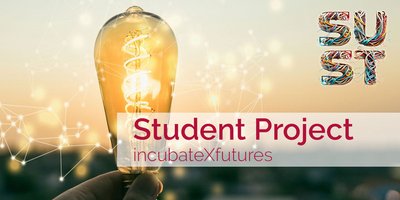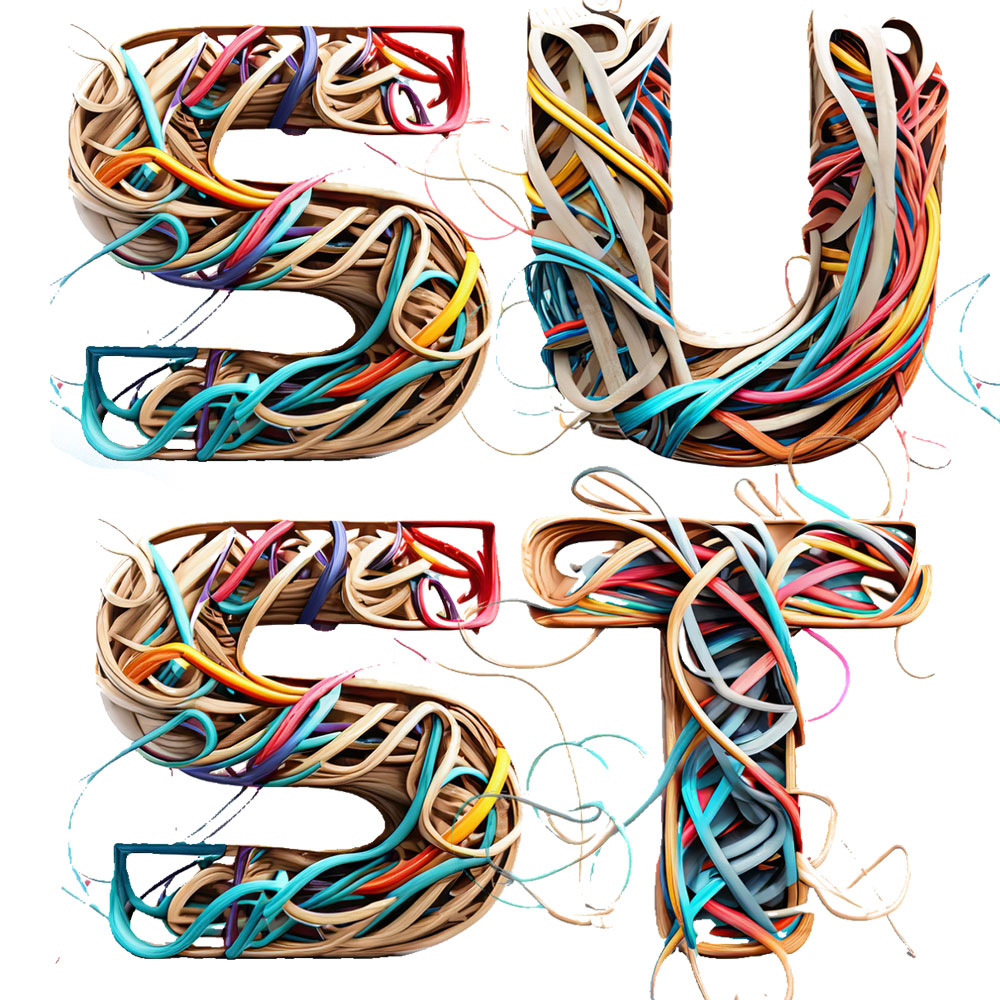New Policy on LLMs and Transparency in Work Creation
We are implementing a new policy to ensure transparency and clarity in the creation of student works, especially those involving Large Language Models (LLMs) like GPT. This policy applies to all works, including seminar papers, thesis, and project reports, and is designed to foster academic integrity, rigor, and replicability in your research.
Key Changes:
- All works must present a clear and transparent account of the methods and tools used in their creation. This includes documenting any use of AI or LLMs in the process.
- When LLMs are used, students are required to submit the complete chat history. This includes both the prompts given to the LLM and its responses. Students should ensure that they use a single chat session, save it in its entirety, and send it separately along with their work. This will provide a comprehensive record of how the work was generated.
- In the methods chapter of your work, there must be a specific sub-chapter detailing the tools and methods used to support your writing and study. This is to ensure that all methods, including AI-based tools, are fully explained and their role in the creation process is clear.
Winter 24/25

Master Student Projects
- Lecturer:
- Prof. Dr. Hannes Rothe
- Daniel Courtney, M.Sc.
- Annemarie Bloch, M.A.
- Term:
- Winter Semester 2024/2025
- Time:
- see description of each project
- Language:
- German/English
Description:
About
Our projects are concerned with societies’ pressing issues represented by the sustainable development goals (SDGs) of the United Nations (UN). There is one project offered in collaboration with the chair’s partners. In second project, you will be able to work on a self-designed project in a team. In these master projects, you engage practically with challenges of the partners’ domain. You will deal with theory in context to digital entrepreneurship, usage and implementation of data, design and sustainability.
Project (A) – Collaboration with our partner Change Clubs
Change Club is an initiative driven by the goal to change our individual lives towards more sustainable living and help each other doing it. Its method is to bring together groups of people to make their lives more sustainable, e. g. friends, neighbourhoods or working colleagues. They equip them with knowledge and tools to engage in individual sustainability challenges for our (daily) lives. The content exists, only an app is missing to accompany the endeavour and design a community-building platform.
For this project, Change Club is designing an MVP for a web app. The app will offer features like tracking the own carbon emissions’ footprint, connect group members among each other and with different groups. ‘Change Modules’ offer knowledge and tools for Club members in different categories like mobility, biodiversity or food, to solve challenges and adapt the own lifestyle.
In this project, students support Change Club to build an MVP, a minimum viable product. According to feasibility and skills, the students are grouped together to contribute to different tasks.
1 A group of students will help the technical team under supervision of a senior developer in developing a mobile app.
2 A group of students support with research for the product, the target group and the market.
3 All students will contribute to the testing and evaluation phase of the app and prospective steps in the future.
Attention - changes:
The first month will be an introductory month: What is Change Clubs about, what are its goals, who are you, the students? Starting in November, you'll be working together with persons from the Change Club's team on their product. November - January will be most intense. This is a real-world project that is intended to get off the ground until the beginning of the next year. Hence, you as students experience in a real case tasks, challenges and processes of a start-up-like project. This concerns project management, development and testing of an MVP and team experience with technical and management teams of Change Club’s.
The students will meet and exchange regularly with members of Change Club’s. The group of students concerned with the technical parts will meet very regularly with (senior) developers to be able to contribute to sprints.
Expected deliverables for Project A:
For this master project, it is expected that students present results, experiences and learnings in a mid-term presentation, a final presentation and a written report. Through these evaluations, they shall
• Illustrate their contributions to the app,
• Analyse Change Club’s business model,
• Contextualise their activities within an overall start-up endeavour,
• Critically reflect upon their learning journey throughout the project.
Sessions:
Tuesdays, 10-12h, starting 08.10. Throughout October, regular sessions on Tuesdays. Afterwards, teams arrange with Change Club individually with infrequent sessions with lecturers in November, December and January.
Dates for mid-term evaluation + final presentation on Tuesdays, 17.12. and 21.01.
Room for first two sessions in October (08.10 & 15.10): S06 S01 A31
Project (B) - YOUR digital venture
This student project is open for master students at Faculty of Computer Science, and for students of other faculties (E3). The projects are focused on taking the first steps towards producing a digital venture that helps to solve societies’ most pressing issues, the sustainable development goals. Small teams of three to five students explore pressing problems and create a potential solution in the form of a Minimum Viable Product (MVP). They develop a business model (Teece, 2010) for their solution and use the MVP to validate core assumptions of this business model (Blank, 2013).
As part of the project, you will take part in the Startup Olympics that take place over a weekend in November (Nov. 15. – 17.). The participation is mandatory. Participation fee is covered for students in this course.
The Startup Olympics require a weekend-long full-day commitment from all students. The benefits from this are great: mentoring, support and workshops on business plan and concept modelling, pitching and marketing.
The master project will comprise sessions addressing
• idea development
• problem space research
• tools for research on market, target groups, stakeholders
• pitching
To pass the course, you will have to deliver several presentations of your team’s results, including interim research results and MVP. It is expected that you build an MVP throughout the course that shows concrete process and adaption according to your research. Both MVP and business case are presented at the final presentation.
Sessions:
Tuesdays, 14-16h, starting 15.10. Throughout October, November and December, irregular sessions on Tuesdays. In-between, teams work self-organized. 1:1 with team and lecturers in December and January. Startup Olympics are mandatory, 15th-17th of November.
Dates for mid-term evaluation + final presentation on Tuesdays, 17.12. and 21.01.
Registration and requirements
Students should have a great interest in digital technologies, their usage and implementation. We will have room for discussion on upsides and downsides of digital technologies. To be able to follow the course and work actively on the projects, you should have basic knowledge about entrepreneurship in general and application scenarios of digital technologies. We strongly recommend to familiarize with standard literature upfront of the course (see below).
Please register with an email to: place2b (at) icb.uni-due.de indicating your study programme, the number of semester you have been studying. You can register as team and individual.
Please indicate skills and competencies relevant to the outlined projects (A-B).
No proper application required, just
Your full name (and that of your team members if you choose Projct B)
Matriculation number
Study programme
Project A or B
3-5 bulletpoints of your skills + comptencies
Grading
Project (A) will be evaluated on basis of a mid-term evaluation (10%), a final presentation (40%) and a written report (50%).
Project (B) will be evaluated on basis of the participation at the Startup Olympics including a follow-up (5%), a mid-term evaluation (10%), a final presentation (35%) and a written report (50%). It is expected that the teams will continue their work towards the finalization of the report, where considerable progress throughout the semester shall be visible.
Qualifications
In these two projects you are equipped with relevant tools, knowledge and hands-on experience in digital innovation and entrepreneurship, data and digital technologies.
Exptected Outcomes
At the end of the project, students will have produced or contributed to an MVP, a pitch deck and a report laying out their endeaour and activities. All of these may be used to progress further and for further promoting the students’ cause.
To receive continued support and develop your idea further after the semester, you can become part of Place Beyond Bytes. There, you benefit from co-working spaces and facilities, a growing network and access to the entrepreneurial ecosystem in the Ruhr area, specifically Duisburg and Essen, a growing co-creation space for young, like-minded entrepreneurial students as well as support and access to digital technologies and knowledge and support with these (e. g. GPU clusters, ML- and other AI-related knowledge). Workshops, consultation and exchange with other (student) entrepreneurs will be offered as well.
Teaching
We conduct research on the intersection between digital entrepeneurship, digital ecosystems, and organizing data and knowldedge. We will provide multiple courses that help to explain changes on firm- and ecosystem levels using multiple theories and methodologies. Our teaching is usually highly interactive and builds upon concepts of blended learning, oftentimes 'flipping the classroom'. It is important to us to not only reflect latest findings of information systems research with our students but also to work together on applying that knowledge.
Our teaching extends to Bachelor, Master, PhD and Postdocs. Offers for PhD and PostDocs will be more clearly defined in the following months.

